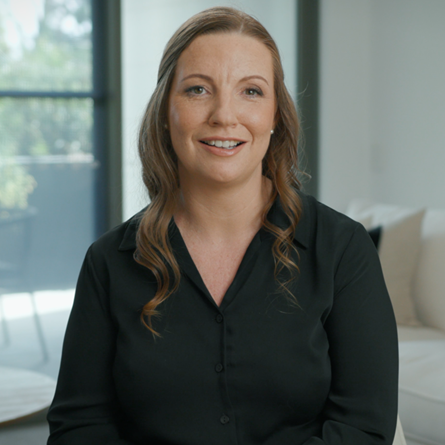When it comes to buying or selling a home, many of us feel confident – we’ve done it before, we understand the process and the contracts usually feel manageable. But stepping into the world of retirement villages is an entirely different ball game.
As a lawyer working in retirement living, I often meet people who are seasoned property buyers and sellers. Yet when they come to see me about a retirement village contract, they’re often surprised, and sometimes overwhelmed, by how different it is. Let’s unpack why that is, and what you really need to think about when considering a move into a retirement village.
-
Real estate vs retirement living: why they’re worlds apart
A standard real estate contract is typically 10–20 pages and focuses on one thing: settlement day. Once that’s done, you’re done. The contract is complete.
Retirement village contracts are fundamentally different. They cover:
- The lead-up to your move.
- The settlement itself.
- Every day you live in the village.
- What happens when you leave – even after you’ve passed away.
Comparing the two is like comparing apples to lamingtons – it just doesn’t make sense.
-
The most important question you should ask
Whenever I meet someone considering a retirement village, my first question is always:
Why this village?
Too often, people get caught up in the contractual details (important, yes) but forget to consider how the village fits into their life. What matters most in your day-to-day? Is it community? Security? Low-maintenance living? Each person has unique needs and so each village is equally unique.
Some are vibrant and social, others are quieter and more independent. The “feel and tone” really matters and you can sense it the moment you step onto the grounds.
-
Understanding the real costs and your rights
One of the biggest traps people fall into is only focusing on the ingoing contribution – the price tag. But this is just one piece of a complex financial puzzle.
Here’s what you really need to consider:
- Upfront cost: The ingoing contribution to secure your unit.
- Fees on entry: Administration, legal or other fees on entry.
- Ongoing fees: General services, maintenance and other levies – and what you are actually getting for those fees
- Exit fees: These can be unlimited, but are usually around 30% – 35% of the amount you pay or the amount that the unit is resold for. The amount you pay depends on how long you stay and what number is used to calculate them.
- Capital gains: Many assume they’ll get it, but many villages retain any gains.
- Maintenance responsibilities: Are you responsible for everything inside your unit? Or does the operator cover all or some of it?
Each village differs, and your contract will spell it out. Your contract will also outline all of your rights, responsibilities and obligations. Reading and understanding the fine print is critical to ensuring a smooth life in your new home.
-
Care needs: plan for the future now
Most people move into a retirement village while they’re active and independent. But life changes, and your needs will too. You should look at the home that you’re moving into and consider if it will suit your needs – not just today, but next year and in 5 or 10 years. You should also think about care, including:
- What care services does the village support?
- Can you access government-funded care at home?
- Will you have to move to higher care later on?
While retirement villages aren’t nursing homes, many do support aging in place with onsite services or partnerships. It’s worth asking about these and start your planning early.
-
Reputation and redevelopment: know who you’re buying from
Choose a village operated by a reputable provider with a strong track record is always a good starting point. Ask other residents how they’re treated. Look for independent accreditation, it’s not everything, but it does give you peace of mind that the operator meets a high standard that is independently verified.
And keep in mind that many villages are being redeveloped to meet future demand. That’s a good thing, but it might mean temporary disruptions. Make sure you understand what’s planned and how it might affect your daily life.
-
Ask the real-life questions
Your contract isn’t just legal jargon, it shapes your lifestyle. Think practically and ask the questions that matter to you most:
- Can I bring my dog?
- Can my grandkids stay overnight…or for the school holidays?
- Can I park my caravan or boat?
- Do I get a carpark?
- Can I charge my scooter or my electric vehicle in my carpark?
No question is too small if it matters to your quality of life. Make a list and bring it to your advisor.
Also, consider updating your will and power of attorney. These may need to be revised to account for leasehold property or the structure of your village agreement.
-
Assembling the right advice team
Moving into a retirement village is a big decision – emotionally, legally and financially. Having the right team around you is essential.
The team could include:
- A lawyer with expertise in retirement living (which is not necessarily the lawyer you have used to do your last conveyance or your will).
- A financial adviser who can assess the long-term impact on your finances and who understand the unique landscape of retirement villages.
- Trusted family or friends to support your decision-making.
- Your future executors, who may need to understand your obligations when you leave or pass away.
This isn’t about questioning your capability, it’s about setting you up for success.
Remember, it’s about more than the contract
Yes, I love diving into every clause when a new contract hits my desk – it feels like grand final day to me. But nobody is throwing a party for Clause 5.3A. What really matters is how you feel long after the ink has dried on the contract. How you live, laugh and connect in your new home and your new community.
So yes, get all the legal advice, and financial planning you need to feel comfortable and fully understand your contract. But just as importantly, find a village that feels right. Because this really could be your forever home.
Hear Danielle speak more about contracts here.
Discover if retirement living is the right choice for you. Download the free Retire Ready guide to find out more.
Not receiving our Vitality monthly newsletter yet? Share your details below and we’ll send you monthly updates, helpful tips, and inspiring stories to support you on your retirement journey.







